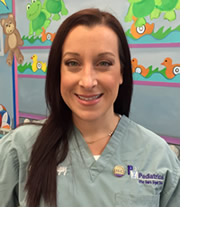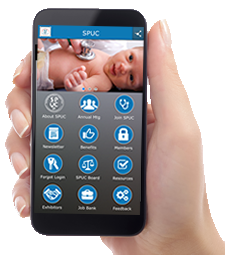PA Corner
PAs are important members of the pediatric urgent care healthcare team
 By Marisa Rodriguez, PA-C
By Marisa Rodriguez, PA-C
My name is Marisa Rodriguez, PA-C, and I have practiced as a pediatric urgent care PA for 10 years and an emergency medicine PA for three years prior. Physician assistants (PAs) are highly trainable members of the healthcare team, and we can diagnose and treat medical illnesses and injuries, order lab and diagnostic tests including x-rays and CT scans, and prescribe medications including narcotics in most states.
In the pediatric urgent care setting, PAs can function independently seeing a variety of medical illnesses and injuries including those of high acuity. PAs have so many strengths, but I believe our medical knowledge base and our procedure skills shine in a pediatric urgent care setting. The highlight of a recent shift of mine was reducing a finger dislocation, shoulder dislocation and repairing a laceration on a three year old’s chin all in an eight hour shift!
At my urgent care, I see my own patients and work with an attending physician who I can refer to if I have questions or need them to examine a patient I have seen. PAs always have a supervising physician that they can call or ask to see a patient. In New York state where I practice, PAs can legally practice alone under the jurisdiction and scope of practice of their supervising physician, but the physician always needs to be available for a phone call or an actual physical visit if advice is warranted. The laws governing PAs vary slightly from state to state, but most PAs can function independently.
Recently, the American Academy of Physician Assistants (AAPA), had their annual conference in San Antonio where PAs, NPs, doctors and students from all over the country convened to hear lectures on various medical and surgical topics, participated in procedure work shops, and attended exhibit hall booths. The theme for the conference was “Power Up”, meaning PAs can look to “power up” their clinical skills, personal network, and career as leaders in health systems, hospitals and group practices.
Not only do PAs work clinically, but we also hold administrative and leadership roles and have other nonclinical responsibilities. PAs can teach other PAs, NPs, doctors and health care workers on a variety of different medical, surgical, and administrative topics. I was lucky enough to attend a conference where my company had an exhibit hall booth. I reached out to hundreds of PAs who were interested in pediatrics and pediatric urgent care and spread the word about the pediatric urgent care specialty and its future.
I can only speak for myself, but I am sure many others feel the same way: Pediatric urgent care holds an important place in the healthcare community and its future, and PAs are important members of the pediatric urgent care healthcare team!




